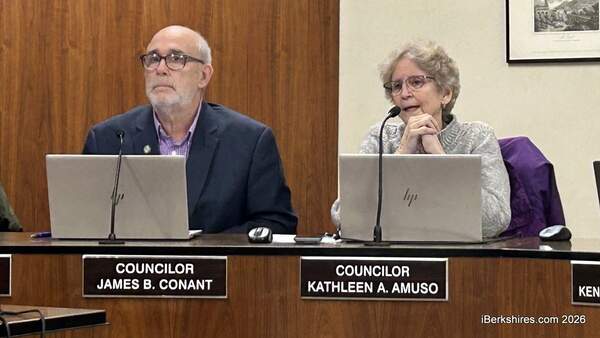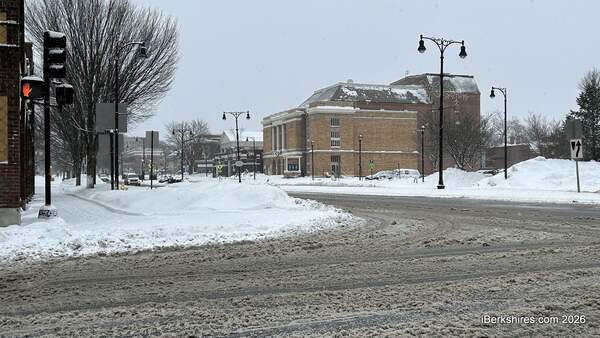Governor Promotes Initiatives in Life Sciences, Climatetech, Applied AI
SOMERVILLE, Mass. — Today, Governor Maura T. Healey detailed new proposals to try to make Massachusetts a global hub for life sciences, climatetech and applied artificial intelligence (AI).
She announced that she is reauthorizing the Life Sciences Initiative to build on the success of the program. She also announced that she is applying this model to a new Climatetech Initiative, which will position Massachusetts to compete in this emerging industry.
Governor Healey announced the filing at Form Energy, an American energy storage technology and manufacturing company, alongside Cabinet members, elected officials, industry leaders, and community members.
The initiatives will be included in the administration's upcoming economic development bill, titled the Mass Leads Act. This bill is also expected to propose investments in the Community One Stop for Growth, rural communities, advanced manufacturing, robotics, tourism, the creative economy and small businesses. It will also build on the momentum of the state's CHIPS + Science wins by making targeted investments in advanced manufacturing and robotics. Governor Healey previously announced that the bill will include $100 million to create an Applied AI Hub in Massachusetts.
Informed by the 2023 economic development plan, the initiatives in this bill will seek to advance the Healey-Driscoll administration's principles of competitiveness, affordability, and equity across all regions and for all residents in Massachusetts.
"The Mass Leads Act will take our proven, homegrown model of the Life Science Initiative to the next level to continue leading the world in attracting innovative businesses to our state and developing life-saving medicines. We'll also stake our claim in burgeoning industries like climatetech and artificial intelligence to make clear that Massachusetts competes to win," said Governor Healey. "This is a transformative opportunity to strengthen our state's economy while also supporting our businesses, workforce and communities, and we look forward to working with our Legislative partners to get it done."
Climatetech
Governor Healey is proposing a $1 billion, 10-year climatetech initiative to make Massachusetts the climate innovation lab for the world. The initiative would create jobs, support technology development and infrastructure to reduce emissions, and promote resilience locally. Massachusetts would be well positioned as a global leader in climatetech. The funds and programs would help companies start and scale in Massachusetts, creating well paying jobs across the state. The initiative has three core parts:
-
Capital Funding: The bill would provide significant capital resources to MassCEC for the first time. Bond authorizations can support research and development, innovation, manufacturing, commercialization, and the deployment of climatetech technologies, including offshore wind, across Massachusetts.
-
Tax Incentives: The bill would authorize funding for tax incentives, which will help ensure the state is competitive in attracting and retaining these businesses. The initiative proposes to establish a new Climatetech Tax Incentive Program to enable the state to invest in climatetech companies, expand employment opportunities and support research and development. The bill also seeks to continue implementation of the newly created Offshore Wind Tax Credit and proposes some strategic changes to further grow the program.
-
Operating Funding: This ten-year strategy underscores the critical importance of annual operating support through the state budget process for MassCEC, which is instrumental in fostering the climatetech industry and training a clean energy workforce. Operating funds will enable MassCEC to deploy stable programming and initiatives to reach areas that capital programs and tax incentives aren't able to reach. This includes workforce development initiatives, internships, strategic partnerships, and operations.
"The Mass Leads Act represents a historic investment that will move us significantly towards our goal to be the climate innovation lab for the world," said Massachusetts Clean Energy Center CEO Dr. Emily Reichert. "These funds would empower MassCEC to significantly expand our work to make Massachusetts be THE place where climatetech companies want to grow and thrive, creating high-quality jobs here in the Commonwealth. The funds would also help us expand our nation-leading position in offshore wind through additional investment in world-class port infrastructure. Governor Healey and Lieutenant Governor Driscoll understand that our climate challenge offers us a profound economic opportunity to create tens of thousands of good jobs, revitalize local economies and lead the country in climate solutions."
More information can be found in the climatetech issue brief.
Life Sciences
The bill also proposes reauthorizing the Life Sciences Initiative at $1 billion for 10 years to position Massachusetts to lengthen its lead as the global leader in the life sciences. Last year, Massachusetts was chosen by the federal Advanced Research Projects Agency for Health (ARPA-H), an agency within the National Institutes of Health, to host its Investor Catalyst Hub, demonstrating the effectiveness of the state's investments in the life sciences.
This long-term commitment will position Massachusetts to win more investment in the industry, develop more life-saving cures, and create more jobs. It will build on the success of prior authorizations while making adjustments to account for present-day challenges and opportunities. The initiative has three core parts:
-
Capital: The Massachusetts Life Sciences Center will embrace a model that encourages multi-institution, cross-sector collaboration among key industries, such as biotechnology, manufacturing, medical technology, higher education, and healthcare. Through this realignment, the state will be better able to pursue health equity ventures, research and development, and capital eligible initiatives to support the ecosystem.
-
Tax Incentives: The Life Sciences Tax Incentive Program has proven successful in incentivizing the creation of jobs in the industry. This bill proposes to increase the statutory cap for life sciences tax incentives to create more capacity in the future and extends the program to 2033 to demonstrate the state's commitment for the next decade. This will further enhance a valuable business development tool to attract and retain companies in Massachusetts.
-
Operating: This new strategy also projects annual appropriations for workforce development programming and other strategic initiatives, including support for early-stage companies. Notably, this component of the strategy incorporates an expansion of Pathmaker, a key component of the Healey-Driscoll Administration's MassTalent Initiative, to scale career training programs for in-demand job opportunities within the industry.
In addition to competitiveness and innovation, equity will be elevated as a priority for the Healey-Driscoll Administration under the new initiative, including creating better workforce pathways into careers in the industry and improving health outcomes for residents in Massachusetts.
"The Life Sciences Initiative has helped catalyze transformational opportunities for Massachusetts residents and patients around the world alongside impactful public-private partnerships benefiting communities across Massachusetts," said Massachusetts Life Sciences Center Acting CEO & Vice President of Economic Development and Partnerships Jeanne LeClair. "Our Commonwealth's leadership in the life sciences is no accident and not guaranteed with fierce competition both national and globally. What remains a key separating factor for our preeminence is the powerful engagement of our elected and civic leaders and the unique ecosystem of collaboration between industry, education, non-profit, and government."
More information can be found in the Life Sciences issue brief.















